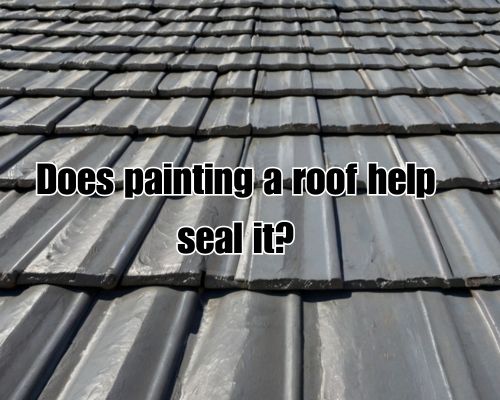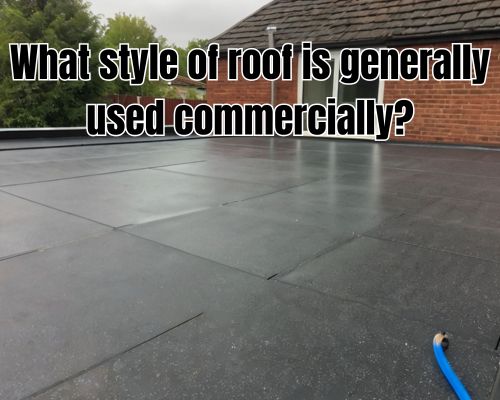How Much Should You Pay a Roofing Contractor Up Front? A Comprehensive Guide for Homeowners in New Jersey

When it comes to hiring a roofing contractor for your home in New Jersey, one of the most important questions you may ask is, “How much should you pay a roofing contractor up front?” Whether you’re located in bustling areas like Newark or quiet suburbs like Red Bank, understanding how payments work can help you avoid potential pitfalls while ensuring your roofing project is completed on time and within budget.

With Charles Jimerson of CJ Commercial Roofing NJ, we’ll explore why contractors ask for an upfront payment, how much is reasonable to pay, and how to manage the financial aspects of your roofing project to avoid being overcharged or scammed. We’ll also touch on New Jersey-specific factors that may impact roofing costs.
Why Do Roofing Contractors Ask for Upfront Payments?
Roofing contractors typically ask for an upfront payment for several key reasons, all of which help ensure that both parties fulfill their responsibilities:
- Materials and Equipment: Roofing projects require expensive materials like shingles, underlayment, nails, and flashing, as well as specialized equipment. An upfront payment helps contractors purchase these materials and secure necessary tools to start the project.
- Labor Costs: Paying upfront can cover initial labor costs for workers, especially if the project spans several days or weeks. Roofing contractors usually have a team of skilled laborers who need to be compensated as the job progresses.
- Commitment from Both Sides: An upfront deposit demonstrates a serious commitment to the project. For contractors, it ensures that the homeowner is serious about moving forward with the project, and for homeowners, it locks in the contractor’s time and availability.
How Much Should You Pay a Roofing Contractor Up Front in New Jersey?
While the exact amount varies based on the contractor, the size of the project, and specific local conditions in New Jersey, a standard upfront payment is typically around 10% to 30% of the total contract value. However, the specifics can fluctuate. Here’s a general breakdown:
- Small Roofing Jobs (Repairs): If you’re getting minor repairs done on your roof, like fixing leaks or replacing a few shingles, the upfront payment might be lower, around 10% of the total cost.
- Full Roof Replacement or Installation: For major roofing jobs like a full roof replacement in areas like Jersey City or Cherry Hill, the upfront payment may range from 20% to 30%. This is common because of the larger materials cost and the need for more extensive labor.
- High-End Roof Installations (Metal, Slate, etc.): For more premium roofing materials, such as metal or slate, contractors might require a higher deposit, ranging from 30% to even 50% depending on the specific project and the roofing company.
Factors Influencing Roofing Costs in New Jersey
When considering how much you should pay upfront, it’s important to account for several factors specific to New Jersey that can affect roofing prices:
- Location in New Jersey: New Jersey has a diverse landscape, with coastal areas like Atlantic City and shore towns in Cape May demanding different prices compared to suburban towns in Bergen County or rural areas in Sussex County. The proximity to metropolitan areas like Newark or Hoboken often means higher costs for materials and labor due to demand and transportation costs.
- Roofing Materials: New Jersey experiences all four seasons, which can put varying demands on the roof. Asphalt shingles are a popular choice due to their affordability and ability to handle snow, rain, and wind. However, higher-end materials like metal roofs or slate are often used for their durability, especially in coastal regions. Such materials may require higher upfront payments because of their cost.
- Insurance and Permits: In some towns or cities in New Jersey, you may need a permit to replace your roof, which can add to your initial costs. Make sure to inquire about any required permits and whether your roofing contractor is taking care of them.
- Labor and Expertise: Roofing contractors in New Jersey with extensive experience in dealing with the state’s diverse weather conditions, especially the harsh winter months, may charge more for their expertise. A contractor who is well-versed in handling snow loads and freeze-thaw cycles will likely cost more, but their work will provide peace of mind and long-term durability.
See CJ Commercial Roofing NJ for more.
Red Flags: How to Avoid Overpaying or Getting Scammed
While it’s standard for roofing contractors to request an upfront payment, there are some warning signs you should watch for to avoid being scammed:
- Too High of an Upfront Payment: Be cautious if a contractor asks for more than 30% upfront. If they ask for the entire payment in advance, that’s a major red flag. Legitimate contractors understand the need to balance risk with their cash flow and typically only require a reasonable deposit.
- Lack of Written Contract: Always insist on a detailed, written contract that outlines payment terms, work scope, and deadlines. Avoid contractors who aren’t willing to provide clear documentation. In New Jersey, you can protect yourself by referencing local consumer protection laws and roofing regulations.
- Unsolicited Offers and Door-to-Door Sales: In New Jersey, as with anywhere else, unsolicited roofing offers are often a tactic used by scammers. If a contractor shows up at your door offering a “special deal” or a pressure sale, it’s best to be wary. Always do your due diligence by checking references and verifying credentials.
- Demanding Cash Payments: Avoid contractors who insist on cash payments. Cash can’t be traced, and any reputable contractor should be willing to accept checks or credit card payments. Cash payments are a common tactic used by dishonest contractors to avoid tax reporting and accountability.
How to Manage Payment Through the Roofing Project
While paying upfront is often necessary to get your roofing project underway, here’s how to manage your payments throughout the process:
- Payment Milestones: Set up a payment schedule with your contractor. This might involve paying a smaller upfront deposit, followed by a second payment after the roofing materials are delivered, and a final payment upon project completion. This ensures that you’re not paying too much upfront and helps keep both parties accountable.
- Inspect Work Progress: Always inspect the work at various milestones before making further payments. For example, before releasing the second or third payment, confirm that the materials have been installed properly and the work is progressing according to plan.
- Final Payment: Make the final payment only when the roof is complete and you’re satisfied with the job. The final inspection should ensure that all aspects of the roof meet your expectations and local New Jersey building codes.
Conclusion: Finding the Right Balance
When hiring a roofing contractor in New Jersey, the upfront payment is a necessary part of the process, but it should be a fair and balanced amount. Generally, a deposit of 10% to 30% is reasonable for roofing projects, with a larger deposit required for major roof replacements. Always ensure you have a written agreement and clear payment milestones to protect both yourself and the contractor.
With a little research and a keen eye for detail, you can find a trustworthy roofing contractor in New Jersey who will provide a quality roof over your head without breaking the bank. Make sure to choose wisely, and remember that paying upfront is only the beginning of a smooth roofing project.


